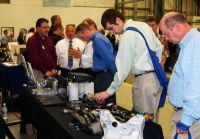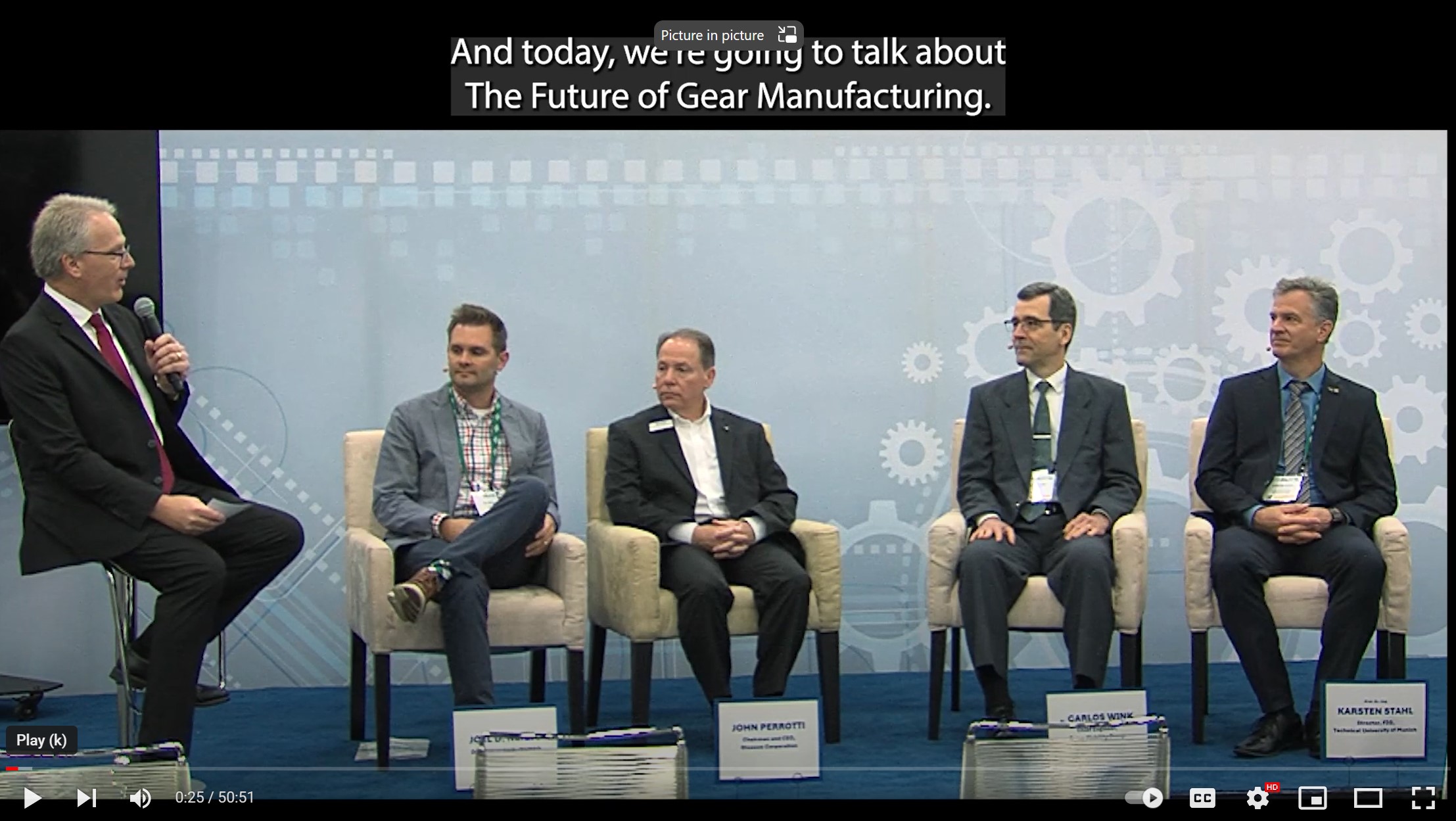Heller Celebrates 30 Years in the United States

In 2012, Heller Machine Tools is marking its 30th year of operations in the United States as a subsidiary of Gebr. Heller Maschinenfabrik, Nurtingen, Baden-Wurtemberg, Germany. Heller worldwide is a 600 milion-euro company with approximately 3,000 employees. The company specializes designing and building high precision flexible production systems for the powertrain operations of automotive and heavy-diesel industries, primarily. In 2012 the U.S. company expects to double sales over 2011, which was a record for the operation, and is about a third of the global total for Heller.
Heller has increased the U.S. content of the systems it produces, partly due to the cost advantages of producing the systems in the United State as compared to Europe. The company has helped to increase the amount of manufacturing technology produced and exported from Michigan, some systems shipping to China for major automotive companies and suppliers. More than 60% of the content of the systems produced at Heller Troy is sourced in Michigan.
The company is a full-line manufacturer in Michigan, designing, building, and servicing its machines from its 100,000 sq ft facility in Troy. There are 130 employees at Troy working alongside 60 contractors. The company estimates it supports several thousand additional employees in 50 or more supplier companies in Michigan.
A specialty of Heller is the machining of compact graphite iron, a very hard material cast into large diesel engine blocks. Machining CGI requires a very stable, heavy-duty machine tool, and Heller CGI machining centers have been placed in nearly all heavy-duty diesel engine and others.
Heller began its operations in the United States in 1982 in Elk Grove Village, Illinois, primarily as an importer and servicer of its crankshaft milling machines it was then selling to Ford, Deere, Caterpillar and Chevy Bay City plants. Its first generation of horizontal machining center, the BEA, was developed and first sold in 1986. Since then, the company has become the largest European manufacturer of horizontal machining centers. Originally, the company designed and produced its own CNC control for the machining centers. Now, most controls are Siemens or Fanuc, depending on customer preference.
In 1995, Heller management in Germany decided to move to the Detroit area as it was increasing its role as a supplier to the automotive industry. The thinking then was that “the auto industry will always need machine tools.” So it built a plant in Troy, expanding it three times since 1996 to create more assembly space, engineering offices and service capability for repairs, machine rebuilds, and spare parts. The company has, in the last 30 years, shipped over 1500 machining centers from its U.S. operations.
In 2000, Heller introduced the MC and MCH lines of machining centers, designed for production of heavy precision components. Heller also began producing flexible transfer lines at Troy, the first systems going to American Axle in Buffalo and Three Rivers, Michigan. In 2006, the company earned its first large flexible machining system order, comprised of 64 machining centers and ancillary equipment including automation. The system, for Detroit Diesel in Redford, Michigan, is producing that company’s new generation family of three heavy diesel engines.
Since 2006, Heller has taken on multiple turnkey flexible system projects, which has accounted for its rapid sales growth in the United States to $200 million. The company is staffed today for all sales, proposal engineering, mechanical and electrical engineering, service and assembly functions—full service from Heller in Troy to the transportation industry.
Important to Heller in Germany as well as in Troy, apprenticeships in manufacturing are the source of future skilled employees. Currently, eight persons are engaged in manufacturing apprenticeships, from tooling to project management. The company in Troy also sponsors engineering internships with three candidates in various engineering disciplines. The company finds it is best to train and develop skilled workers from within rather than hiring from a competitor.





